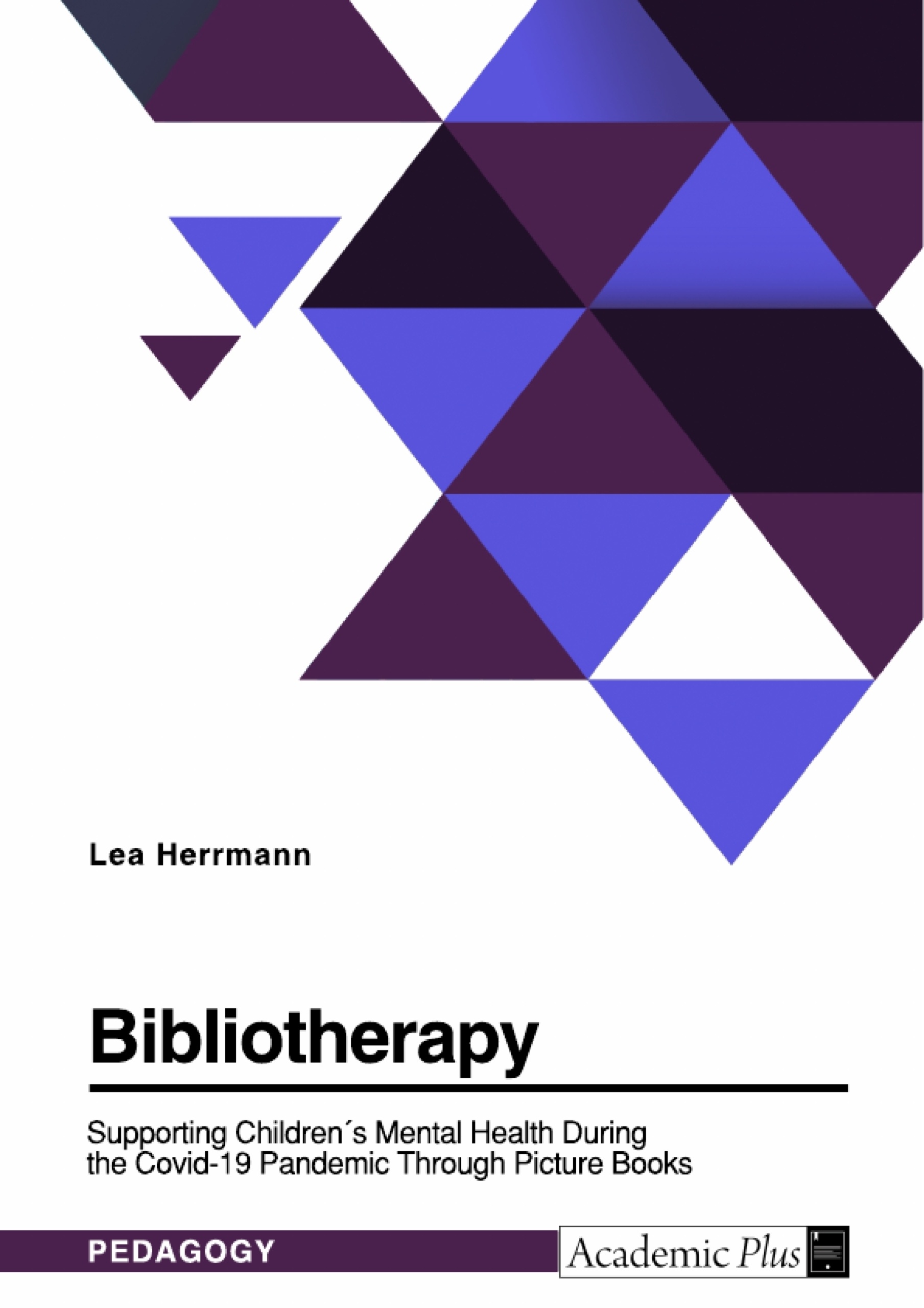This thesis investigates the process of bibliotherapy and conducts a content analysis on how children's mental health was supported and improved during the Covid-19 pandemic through picture books. The results of this research can provide information for parents, teachers and caregivers on choosing appropriate picture books for bibliotherapy.
When Covid-19 arrived, the disease quickly spread fear, confusion, and panic, resulting in a lockdown which affected many countries around the globe. Children's routines were abruptly changed, and a lot of contrasting information was spread about the virus. During this time, people had to reach out for mental, emotional and physical help more than ever. On the one hand, having to stay alone at home as well as social distancing brought loneliness, boredom and fatigue. On the other hand, being confined with others increased the stress on relationships. The pandemic increased children’s exposure to domestic and sexual violence, and greatly reduced their contact to other important people in their lives.
For children, effective intervention measures were crucial to assist them throughout the pandemic so that they gained a better understanding of how to handle situations effectively. Systematic reading for therapeutic purposes can improve coping strategies and help make more informed decisions. Reading stories with children can open a safe space, teach them that they are not alone, provide insight into what is happening around them and offer information that can help them overcome their circumstances. Numerous approaches can be used to assist children in dealing with difficult situations. One of these can be bibliotherapy, a valuable intervention that can help by coping with the effects of a lockdown and paying specific attention to the changed situation. It can allow children to face the uncertainty produced by school lockdowns and the inability to see friends and family. Bibliotherapy can provide guidance in identifying problems, discussing feelings, and exploring possible solutions. Books have been a tool of change and can assist in making decisions and coping with difficult situations.
Inhaltsverzeichnis (Table of Contents)
- Introduction
- Part I: Theoretical Framework
- (Children's) Picture Books
- E-Books
- Tender Topics in (Children's) Picture Books
- Critical Thinking Through (Children's) Picture Books
- (Children's) Mental Health
- Bibliotherapy
- Covid-19 and Its Consequences
- Publishing During a Pandemic
- Covid-19 Topics Affecting Children
- Covid-19 and CLIL
- (Children's) Mental Health and Covid-19
- Part II: Analysis of Selected (Children's) Picture Books
- Excursion: Ontology of Reality and Postmodern Picture Books
- Method and Procedure
- Introduction of Selected (Children's) Picture Books
- Analysis
- Results
- Response - Results
- Mental Health - Results
- Pandemic - Results
- Messages - Results
- Evaluation
- Findings and Discussion
- Response - Findings
- Mental Health - Findings
- Pandemic - Findings
- Messages - Findings
- Limitations
- Research questions
- The role of picture books in supporting children's mental health
- The impact of the Covid-19 pandemic on children's mental well-being
- The use of bibliotherapy as a therapeutic intervention for children
- The effectiveness of picture books in addressing specific themes related to the pandemic, such as isolation, fear, and uncertainty
- The potential of picture books to promote resilience and coping mechanisms in children
- Introduction: This chapter sets the scene for the study by introducing the context of the Covid-19 pandemic and its impact on children's mental health. It also introduces the concept of bibliotherapy and its potential application in this context.
- (Children's) Picture Books: This chapter delves into the characteristics and potential of picture books, focusing on their suitability for exploring complex themes and fostering emotional understanding in children. It also examines the specific features of e-books and their relevance to the study.
- Bibliotherapy: This chapter provides a comprehensive overview of bibliotherapy as a therapeutic approach, outlining its principles, methods, and applications in various contexts.
- Covid-19 and Its Consequences: This chapter explores the multifaceted impact of the Covid-19 pandemic on children's lives and mental well-being, highlighting the specific challenges and anxieties they faced. It also examines the publishing landscape during the pandemic and the emergence of picture books addressing Covid-19-related themes.
- (Children's) Mental Health and Covid-19: This chapter investigates the specific impact of the pandemic on children's mental health, examining the prevalence of mental health issues and the factors contributing to their emergence.
- Method and Procedure: This chapter outlines the research methodology used in the study, including the selection of picture books, data collection methods, and analytical framework.
- Introduction of Selected (Children's) Picture Books: This chapter provides a detailed overview of the picture books selected for analysis, highlighting their key themes and narrative elements.
- Analysis: This chapter presents a comprehensive analysis of the selected picture books, focusing on how they address the themes of response, mental health, pandemic, and messages.
- Results: This chapter presents the findings of the analysis, summarizing the key insights derived from the study of the selected picture books.
- Evaluation: This chapter critically evaluates the findings of the study, discussing their implications for the understanding of bibliotherapy and its potential application in supporting children's mental health during the Covid-19 pandemic.
Zielsetzung und Themenschwerpunkte (Objectives and Key Themes)
This master's thesis explores the potential of bibliotherapy using picture books to support children's mental health during the Covid-19 pandemic. The study aims to analyze how picture books address the challenges and anxieties experienced by children during this time and identify their effectiveness as therapeutic tools.
Zusammenfassung der Kapitel (Chapter Summaries)
Schlüsselwörter (Keywords)
This study focuses on the use of picture books as a tool for bibliotherapy to support children's mental health during the Covid-19 pandemic. Key concepts include bibliotherapy, children's literature, picture books, mental health, Covid-19, and the impact of the pandemic on children.
- Quote paper
- Lea Herrmann (Author), 2022, Bibliotherapy. Supporting Children's Mental Health During the Covid-19 Pandemic Through Picture Books, Munich, GRIN Verlag, https://www.grin.com/document/1361231




